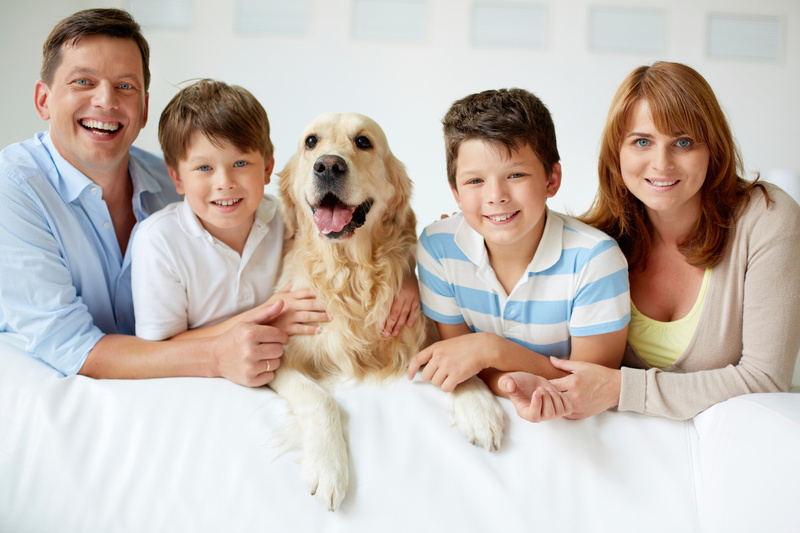
 You’re probably surprised to see the title of this post on an HVAC and plumbing blog, but bear with us, and read on. Whether we’re talking about winter or summer, the fact is that we get a lot of use out of our home appliances—from our heating and cooling systems to our water heaters and lighting. Naturally, you want to save as much money as possible when using these appliances and fixtures. But if you’re a cat or dog owner, you might find yourself at war between your wallet and what’s best for your animal. Well, we have good news! There are actually a couple misconceptions about how pet-owning homeowners use their Andover, MN air conditioning systems, heating systems, and even plumbing and electrical systems. By debunking them, we hope to get you well on your way to saving some money while still keeping your furry friends comfortable.
You’re probably surprised to see the title of this post on an HVAC and plumbing blog, but bear with us, and read on. Whether we’re talking about winter or summer, the fact is that we get a lot of use out of our home appliances—from our heating and cooling systems to our water heaters and lighting. Naturally, you want to save as much money as possible when using these appliances and fixtures. But if you’re a cat or dog owner, you might find yourself at war between your wallet and what’s best for your animal. Well, we have good news! There are actually a couple misconceptions about how pet-owning homeowners use their Andover, MN air conditioning systems, heating systems, and even plumbing and electrical systems. By debunking them, we hope to get you well on your way to saving some money while still keeping your furry friends comfortable.Myth #1: You Should Leave Your Home as Cold (or as Warm) as Possible
During the summer, it makes sense that you’d assume since dogs and cats basically have built-in fur coats, that they need extra cold air. However, this isn’t necessarily the case. Now, we aren’t saying that you should leave your AC system off if outside temperatures creep above 80°, but most homes stay comfortably cool enough at 78°, particularly if you keep your blinds and curtains closed so that the sun doesn’t beat down through the windows. Many homeowners leave their thermostats set to 72°, thinking that is the necessary temperature, but the truth is, most of our pets are pretty inactive when home alone, and even if they are playing, their means of cooling off is by panting, not necessarily by sitting in front of an AC vent. On that same note, there is really no need to set your thermostat above 68° in the winter time. In fact, even that may be higher than necessary. However, different pets do have different needs so if you find yours seeking cover during the winter, you may want to turn it up a couple degrees after all.Myth #2: You Should Leave Your Ceiling Fans On
You might have already heard that it is a waste of electricity to keep your ceiling fans on when you aren’t home. This is because ceiling fans help move air (which makes them advantageous to use in conjunction with your air conditioner), but they do not generate cool air or do anything to lower the temperature in the room. In fact, the reason ceiling fans help us humans out so much is because the breeze created by them helps sweat evaporate from our skin. Our pets don’t sweat the way we do—as we mentioned above, most pant to cool off. Therefore, there’s no sense in leaving ceiling fans on, as it won’t benefit them and it will only cost you.Myth #3: You Should Leave Lights and/or Your TV On
Now, if this is something you do as a security measure, then, by all means, continue to do so. However, if you’re doing it purely for the sake of your pet then chances are you don’t need to be, and that you’re only wasting electricity. With the exception of some dogs and cats, generally speaking, leaving anything on that makes noise typically confuses a pet more than helps them relax.Myth #4: You Should Wash Your Pets Bedding with Hot Water
Let’s face it, your plumbing use, and water heater use, contribute to energy loss as well. But the good news is, you can cut back on it a little by using cold water instead of hot water to wash your pet’s bedding and toys. It uses significantly less energy, and there really is no need to use hot water for your canine or feline products.For expert energy saving tips and exceptional HVAC, plumbing, and electrical services, contact Air Mechanical, Inc. today!
